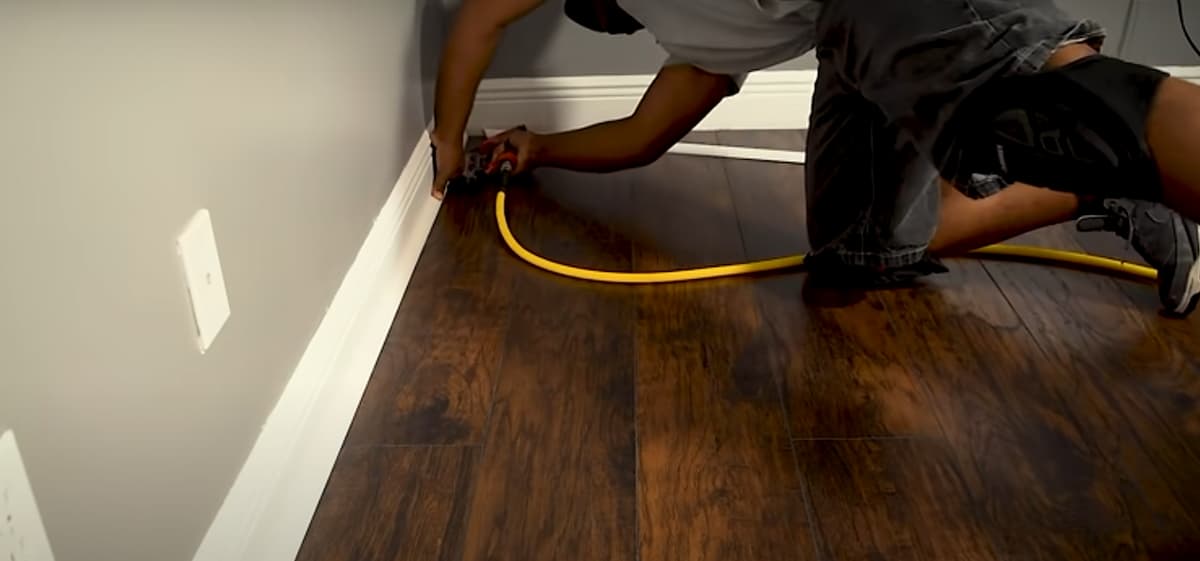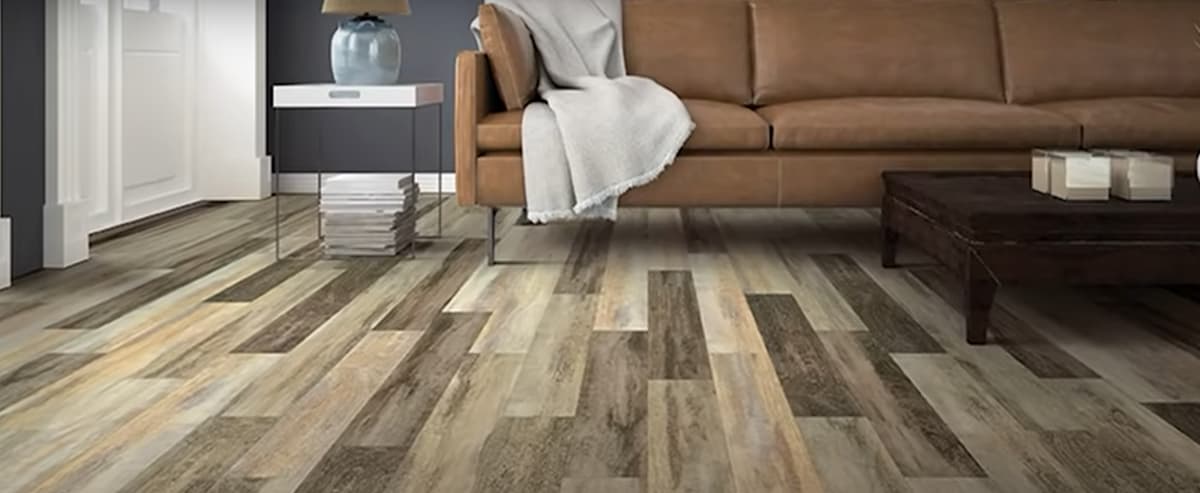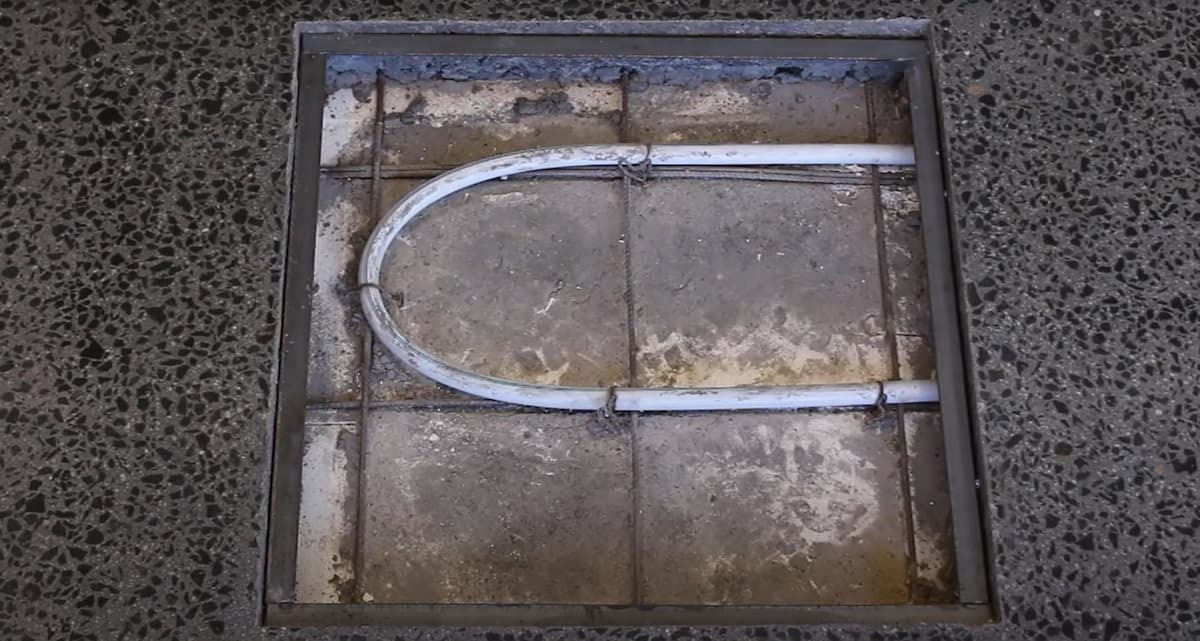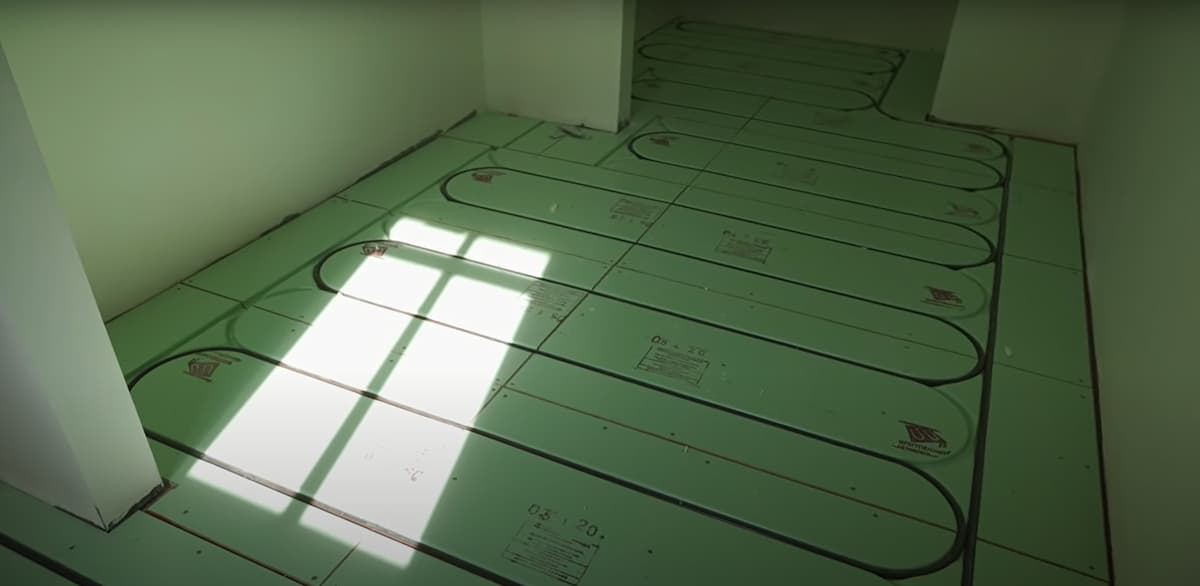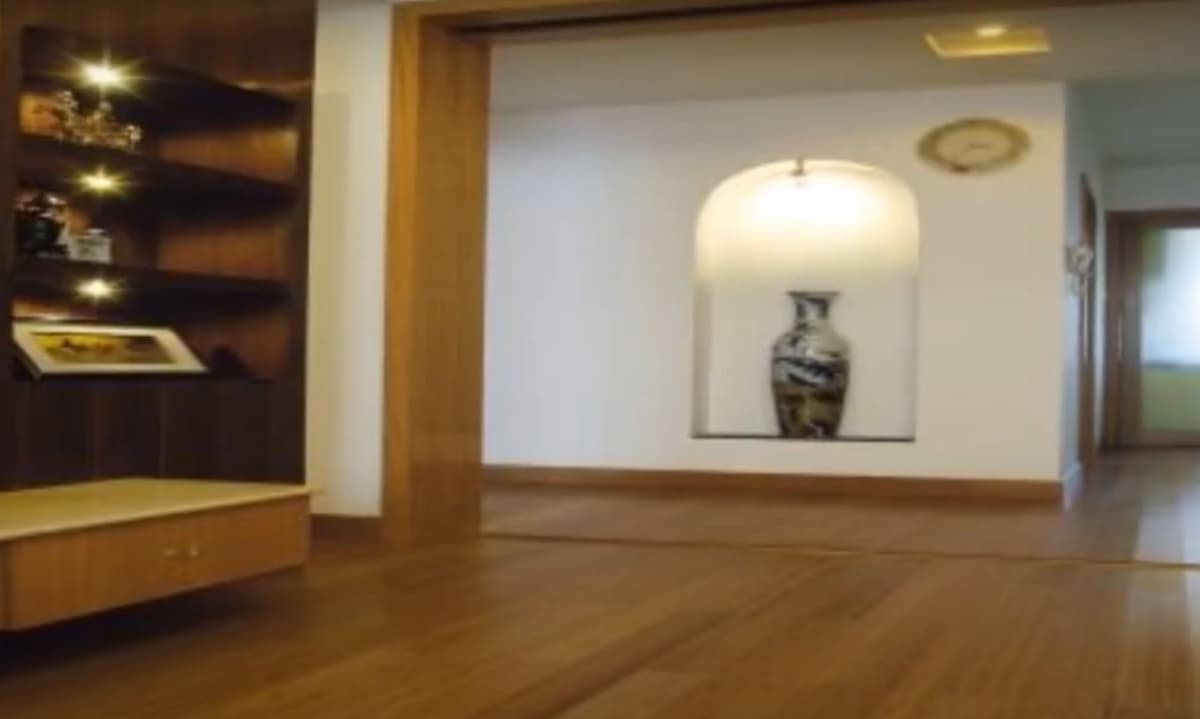
Bamboo flooring versus vinyl plank flooring is one of the common questions asked by people when they are looking for bamboo flooring for their homes. There are several differences between the two that you may know before making any decisions on which type of floor you want.
Below we may give you an unbiased look at both types of floors and hopefully, it may help you make the right decision on what type of bamboo or vinyl floors fits your needs best.
Difference Between Bamboo and Vinyl Flooring
Bamboo flooring is made from bamboo, hence, the name. It is a more green alternative to the common vinyl plank flooring. When you buy bamboo flooring, it is one of the most eco-friendly wood floors you can get on the market today.
Bamboo grows very quickly and is harvested regularly without having an impact on the environment or local ecosystem.
A lot of people out there are concerned with chemicals that could be used in creating some types of vinyl sheet goods. Vinyl plank flooring has had controversy over some time due to its chemical content.
There are many different grades available when it comes to vinyl plank flooring that varies in the type and amount of chemicals used during production.
Vinyl Plank Flooring
Vinyl sheet goods come in rolls instead of planks like most hardwood floors on the market. Because of this, vinyl flooring is typically more affordable than bamboo flooring. Vinyl comes in many different colours and designs to fit your decorating needs. Vinyl sheet goods are also great for moisture since they can be installed in bathrooms and kitchens without the worry of warping or swelling over time. There are several different types of vinyl available, but most may fall into one of these three categories:
- fluid-applied (similar to linoleum)
- thermoplastic (a plastic base with a wear layer attached)
- reaction-cured (a two-part system that uses heat and pressure to fuse the components together)
Vinyl vs Bamboo Flooring
There is a cost difference between the two. Vinyl plank flooring can be purchased for roughly $25 per square metre whereas bamboo comes in at $60 and higher per square metre. To check the price outside Australia, check with a local contractor to find out the average per square foot price.
Bamboo Flooring
The main difference between vinyl and bamboo flooring is that bamboo is a natural product, whereas vinyl is man-made. There are many concerns over the use of chemicals in creating some types of vinyl sheet goods as well as how it impacts the environment over time. Bamboo grows very quickly and requires little maintenance to keep it looking great for years to come with no impact on the environment or local ecosystem. Not all hardwood floors are cheap but many manufacturers offer several options that fit your budget needs for bamboo flooring.
Choosing either type of flooring is a decision requiring you to weigh both the pros and cons. Vinyl flooring is affordable, strong, flexible, durable and waterproof. Bamboo flooring is more eco-friendly than vinyl flooring but can be expensive. Overall it is your choice based on your needs which type of bamboo or vinyl floors (or hardwood) fits your home best as well as your budget.
Difference Between Vinyl and Bamboo Flooring
Vinyl flooring is a man-made product while bamboo flooring is a natural one. Bamboo can be considered a green and environmentally friendly solution whereas vinyl sheet goods often consist of chemicals and substance that cannot be recycled and requires special treatment and disposal process after its use. Vinyl floors (floating floor sheets) are easy to install in comparison with laying out planks of bamboo flooring.
On contrary, bamboo flooring has several advantages over vinyl products.
First of all, bamboo grows very quickly so it’s replenished naturally without any impact on the environment or local ecosystem, which makes it an eco-friendly choice. Also, there are no substances used to produce this type of hardwood floor.
Secondly, there a.e fewer chances to have cracks in the bamboo planks and no risk to get any moisture damage under your feet.
Moreover, an engineered bamboo floor ( like laminate flooring ) is stronger than all types of vinyl products and hold the shine for more time. There is no need to cover laminate flooring with rugs or carpets since it doesn’t get slippery when wet.
Vinyl products often come in rolls so you can use them only in places such as bathrooms and kitchens where there’s not much space due to plumbing issues etc.
Vinyl flooring is considered more affordable than bamboo flooring or any engineered laminate flooring, but keep in mind that this type of hardwood floor consists of a lot of chemicals that cannot be recycled after its use. The same concerns go for bamboo products, even if they’re eco-friendly, during production some substances may be used that require special treatment and disposal process.

Bamboo vs Vinyl
When we look at the ease of installation, bamboo flooring is the easiest to install, especially the floating floor type. Vinyl floors are very easy to install compared to laying out planks of bamboo flooring.
Vinyl floors are installed using a process called glue-down installation, which attaches the sheet goods directly over the subfloor that secures them into place. This creates an even surface for walking or rolling furniture on top of it because you don’t see seams on your hardwood floor.
When these sheets are installed correctly, they can create brand new seamless surfaces without any need for transition strips between rooms or materials.
However, if not done properly, these glued seams may fail where moisture can become trapped underneath and cause mould growth or rot under your floorboards (do-it-yourselfers could pay attention that it could be done perfectly).
Vinyl vs Bamboo
So, vinyl vs bamboo comparison shows that these two types of hardwood flooring are different in many aspects but both meet high standards for durability, strength and design. We would recommend you to choose products from manufacturers with a good reputation so your money goes not to waste.
Also, be careful when choosing either type of flooring since there are many cheap vinyl products on the market because low prices attract customers but they can easily regret their purchase after a short period because quality may be compromised. Vinyl flooring is often made out of recycled materials (31%) which makes it much more affordable than natural bamboo floors. Even though it’s made using man-made materials, wood flour present in many types of vinyl flooring creates a nice warm atmosphere.
Bamboo Flooring vs Vinyl Flooring
Bamboo flooring is nailed or stapled onto the subfloor. There are transition pieces between rooms and you need to provide an expansion gap under your thresholds. This difference in the installation process can lead to small gaps around thresholds which may appear over time between the flooring and the door jambs, which may allow for dirt, moisture and bugs to come in under doors so they may be filled before installing bamboo floors.
Once again, when properly installed both types of flooring look great but if done wrong vinyl floors are more likely to fail than bamboo ones.
Many people prefer the natural hardwood alternative because nothing beats the real thing when it comes to beauty that lasts for years with little or no maintenance. On the other hand, vinyl flooring is more affordable so it provides good value for money. However, what’s most important is that you’ll be happy with your new product and show off to visitors how much you care about yourself and this planet.
Vinyl Flooring vs Bamboo Flooring
When you’re thinking about whether to choose bamboo vs vinyl, you could consider different aspects such as cost, environmental friendliness and installation difficulty. Bamboos are usually more expensive than vinyl plank flooring but it has other benefits such as beauty that may last years without any special care. On the other hand, vinyl plank flooring is much more affordable and very easy to install which makes it a perfect choice for busy people who don’t want to spend hours sweating in their free time.
In short, both types of flooring provide durability with a nice design but if done wrong, engineered bamboo is more likely to fail. In addition, vinyl floors are easier to install and they can create brand new seamless surfaces without transition strips between rooms or materials which makes them easier to clean and maintain compared to natural bamboo ones. On the other hand, when properly installed both types of flooring look great.
Maintenance Vinyl vs Bamboo
As you can imagine, both types of flooring require some maintenance from time to time. Also, when properly installed they may stay new for years so it’s worth spending some extra money on the right product since your satisfaction is guaranteed with a floor that looks great and lasts even longer. In addition, vinyl floors are easier to install which means you’ll get your dream floor faster while proper installation of bamboo requires more care since nails or staples could be used while installing both types of hardwood flooring.
The best choice for busy people who don’t have enough free time to spend on housework is definitely vinyl because easy-to-clean surfaces mean a lot nowadays when there are no kids around anymore. Bamboo may be more expensive but it deserves extra attention because, as mentioned earlier, nothing beats natural hardwood when it comes to beauty that lasts for years.
Durability Vinyl vs Bamboo
Additionally, vinyl plank flooring is more durable than bamboo floors which means you’ll get your money’s worth even if you need to replace it within the first few years of use. This is not important for everybody (especially people with laminate flooring) but it definitely makes a difference when choosing what type of floor to invest in since there are so many manufacturers on the market who try to lower prices by cutting quality.
On the other hand, every type of hardwood requires some care over time so think about how much time and effort you can afford to spend on this project before making up your mind because all investments are made with good intention but only action speaks volumes.
How Long do They Last?
Finally, it’s a common belief that vinyl plank flooring is not as durable as other types of hardwood but don’t listen to rumours since there are so many options available on the market with high-quality materials and easy installation. Also, bamboo floors require more care but they last for years without any special attention which makes them perfect even if you’re busy most of the time.
It doesn’t matter what type of floor you choose in the end because both products provide beauty, durability and satisfaction. Just make sure that you choose right by doing your research before buying your new product because only then may freedom from noise bother to ensure true peace and quiet in your living room.
Repair of Bamboo vs Vinyl
The next topic is related to repairing hardwood floors and once again bamboo requires more maintenance because it’s harder to fix. In addition, installing vinyl plank flooring yourself saves you a lot of money that can be put into appropriate repairs which can make your new floor look new in no time.
All types of hardwood require some level of care or they may fail in a matter of weeks so think about the best solution before making up your mind in order to get something durable and easy to maintain at the same time.
Cleaning Bamboo and Vinyl Flooring
Last but not least, cleaning vinyl floors is much easier than taking care of bamboo ones which means there are fewer risks for allergies or infections from bacteria that may accumulate over time if you don’t take good care of your floor.
Simply put, both types of hardwood are very efficient in terms of possibilities but woven bamboo requires more work which is not always what busy people need or want to think about how much time you have before making up your mind since this may help you to get the best out of every situation. Cleaning wise it’s as easy as cleaning laminate flooring.
Conclusion
When it comes to buying bamboo vs vinyl hardwood flooring there is no clear winner because they both provide the same efficiency while looking different and lasting for years if properly installed. So, once again, think about your requirements, do some research and choose wisely by doing your due diligence before investing in any type of new floor.


